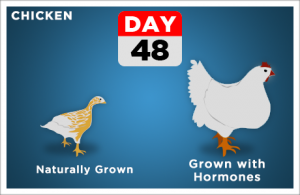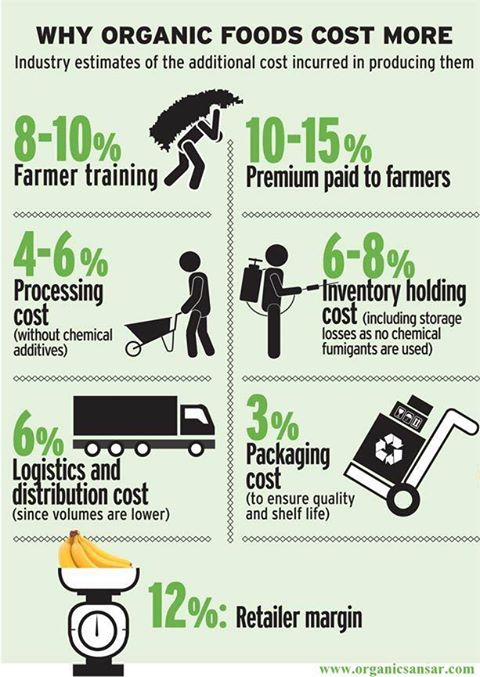
Most of us know that organic produce is becoming more readily available in Singapore both at supermarkets and at local cafes, however how many of us are aware of the organic roots in farming methods that allow us to obtain this clean and green produce? A majority of us are still very unfamiliar with the organic farming guidelines and processes.
As mentioned in the Home page, the meaning of the word ‘organic’ is simply all things that are natural and chemical-free. Therefore organic farming is plainly traditional farming but with methods that are only natural and chemical-free. This means that insecticides and synthetic fertilizers are not used, and the farmers used specifically natural methods such as crop rotation to maintain the fertility of the soil and keep pests away. Furthermore, organic farming approaches leave much lesser an environmental footprint in comparison to traditional farming technologies and procedures.
It is interesting to note how the organic movement began to pick up after the second Industrial Revolution. The organic approaches to farming that first started again in Europe were brought to Australia around the 1950s. This all natural approach led to a wide consumer interest in health and nutrition as well as environmental sustainability, and the growth of the organic market encouraged more and more farmers to take on organic farming approaches.

“Know your farmer, know your food”
It became that if you did not already grow your own produce, the next best alternative was to get your produce from someone you could trust. People were looking to buy their produce locally, where they were able to speak to these farmers themselves and even watch them at work on the farms to see if their methods were indeed organic.
It was from this organic farming movement that an organic lifestyle was cultivated. People knew that the food they were consuming that was produced on organic farms were natural and chemical-free, and they wanted more aspects of their life to be organic. Many of them started boycotting the use of synthetic material in clothes and only chose to wear clothes that were made from natural fibers such as organic cotton, organic wool, organic silk, bamboo, hemp and flax fibers, etc. We venture more into the world of organic fashion here.
Going back to the natural and chemical-free methods which organic farmers use on their farms, the three most popular methods are:
METHODS
- Crop rotation – The crop rotation method involves growing different or various types of crops in the same farm or location as per the different seasons and in a sequential manner. This method of organic farming which protects the soil fertility and prevents soil erosion also helps in supporting a wide range of beneficial soil microorganisms and insects thereby adding up to overall farm health. (Not all insects are bad, like bees and butterflies!)
- Biological pest control – Biological pest control is an important method of organic farming whereby living organisms are used to control the pests with a farmer overseeing it actively. In this method, the farmers rely on predation, parasitism, herbivory, or other natural mechanisms to manage weeds and other pests without using any synthetic herbicides or toxic chemicals.
- Using green manure and compost – This is another popular method of doing organic farming as I had seen in India, whereby the dying plants, dried up vegetation, and other natural farm waste are mixed together into the soil to act as a source of nourishment which leads to an increase in the quality of the soil. The compost, which is highly rich in nutrients, is also used as a fertilizer for growing crops in an organic way.

As for meat, in order for meat to be organic, the animals must be raised in ethical and clean conditions. For example the cows and sheep must be grazing on land that is pesticide-free. The greater concern at hand is the use of hormones and synthetic growth promoters in meat not raised according to organic methods. These conventional meat are full of hormones and antibiotics which can lead to health risks, namely increased risks of reproductive system cancers in humans.

That being said, conventionally-raised meat, especially chicken should be avoided at all cost. Similarly, the hormones from conventionally-raised cows can be passed through to milk and affect us. Go for organic dairy products from farmer markets if possible.
WHY IS ORGANIC PRODUCE MORE EXPENSIVE?

Although there is no denying that organic produce is more costly, one should not put a price on one’s health. Save costs in other areas, maybe save energy and electrical costs by lowering air-condition and TV usage. If you still need more convincing as to why you should switch to organic produce, here’s something for you.

Besides boycotting these toxic albeit efficient farming methods and unhealthy food productions, the world governments should step in. Start banning such products in our environment. Yes there will be much struggle and loss for many communities all over the world, but an Organic Revolution where all these processed toxic chemicals are finally put to an end once and for all could be the much needed political action that saves ourselves and Mother Earth.
“Be the change you wish to see in the world”
We need to be the change now, all of us in the human race, before the world changes and leaves us humans behind.